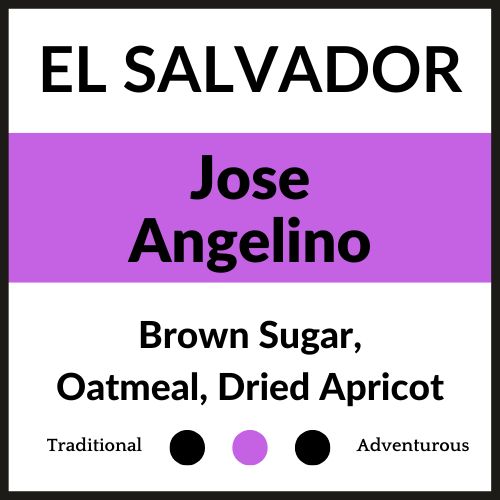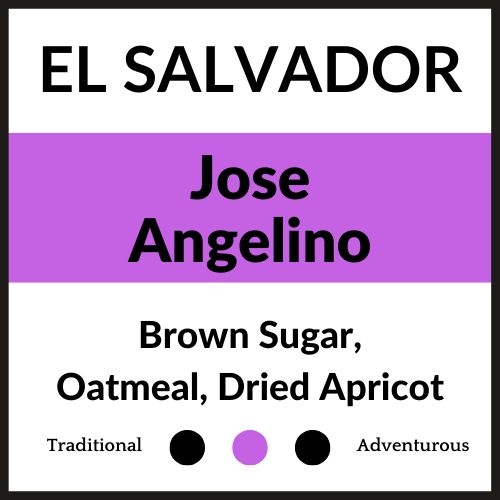Angelino's journey into the world of coffee began with his father, who grew the Pacas variety at a time when quality was neither a trend nor a focus for farmers in the region. When leaf rust hit the region in 2012, he lost all hopes of succeeding as a coffee producer, but somehow found a glimmer of hope in specialty coffee. He decided to learn more and realized he could find hope and growth in this market. Today, Angelino says, "If it's not quality coffee, I better not grow it."
When he focused on specialty coffee, the family's income improved, and he was able to reinvest in the farm and open another business. Angelino manages the farm, his wife Rosa Elida runs the other business, a roasting and packaging service, and their children help with farm activities, such as harvesting and supervising the the pulping process. [For the natural process] the cherries are fermented anaerobically in clean bags and sacks in the shade for 60 hours, avoiding direct sunlight. After this time, the cherries are spread out on the raised beds to dry.


